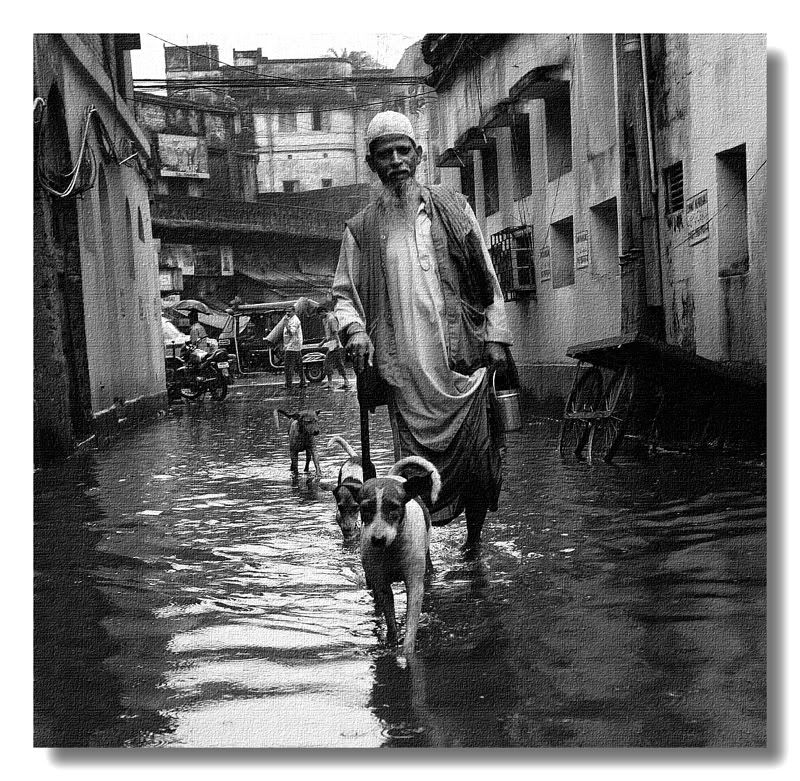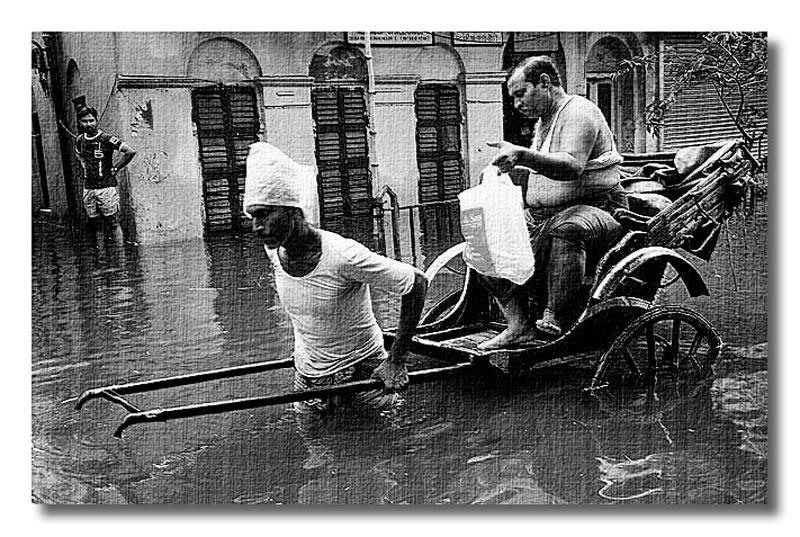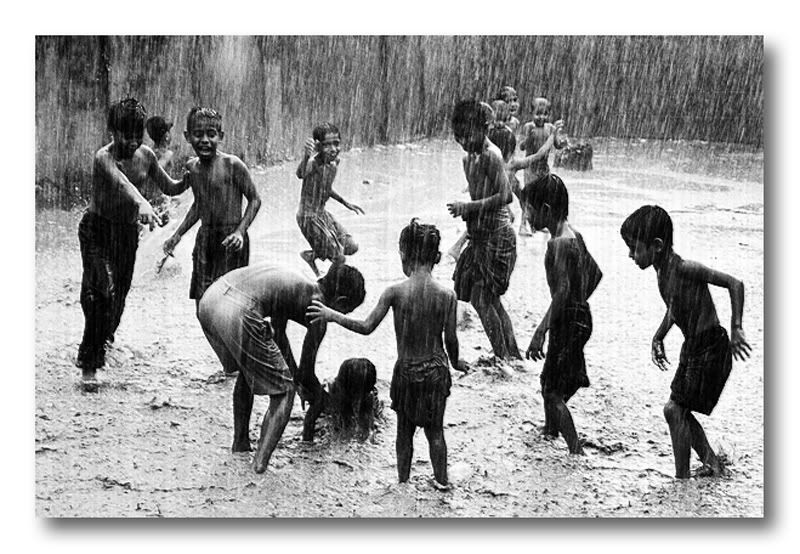
Under a wan and lukewarm morning sun Kolkata's 270 grimy square miles of living space looked cleansed, polished and refreshed. It was as if the city had gone to the barbers and had a facial. It's pored cleansed and breathing. The Monsoon rains had sluiced the streets, washed away the grime on the walls, and swept away (albeit temporarily) the grubby pavement dwellers. Suddenly flashes of greenery; previously begrimed in a thick coat of Kolkata dust, were springing up everywhere. Green shoots and pulsing flowers quivered bravely under dark-grey skies, their struggling stalks squinting through the cracks on the roads and pavements. Nature was reclaiming what was rightfully hers. The city now sparkled as if brand new; a veritable garden city I spied from atop the rooftops. A far cry from the 'surfeited muck-heap' that Rudyard Kipling had described. But as I walked through the centre; following the receding flood waters, the old Kolkata began to reassert itself again. Traffic lights had broken down, straggling gangs of pavement dwellers and gaunt cattle appeared looking dazed under the sun (as if they'd been hiding underground).
The people in Kolkata are different to the other people I'd seen in India. There is a gaiety about them, as though teetering on the edge of the apocalypse, they want to squeeze as much out of a single day as possible. Living on a day to day basis does that to people. Tomorrow is far too distant to worry about today. But with this helpless poverty comes another feeling which I was beginning to imagine. A feeling I had identified and caught and was now grappling with in my mind: relief. A relief that comes from the realisation that you have reached rock-bottom. That you are scraping the very bottom, nay the very dredges of the world's barrel, and yet here you are - still alive! It ain't so bad after all - and what's more: you can take it. Life is distilled. It is reduced simply to a matter of survival. One is no longer concerned with the accoutrements of civilisation and its lofty ideals such as education, work, promotion, envy, fashion, the rat-race, love and books. All of life, your thoughts and dreams and aspirations are condensed into a little space the size of your fist: your stomach. Life is reduced to your stomach and its satiation. It is then, and only then, that one realises what it really means to be human. And this realisaton, as the Noble Prizewinner Albert Camus once remarked, underlies its comedic Monty Pythonesque absurdity. Kolkata is the earthly incarnation of the Myth of Sisyphus. Albert Camus, if he'd ever visited, would have loved it. Just like I do. So strong is the city's hold on me, so bewitching the curse, that even in my dreams I feel the urge to hug the citizens that prowl the streets. To grab their heads and kiss them full and say in a soothing voice: 'It is ok. It will be fine' - and then they shake their ravaged faces happy in the thought that somebody has noticed. There is comfort to be had in knowing that your suffering has been acknowledged. There is nothing worse than it being swallowed whole by times maw. I have suffered but it makes me feel better that you have seen it. And in a way this writing and fotografing, amongst many things, is a living-epitaph. An evolving organic monument, to the many faces; happy and sad, of the human condition.


______